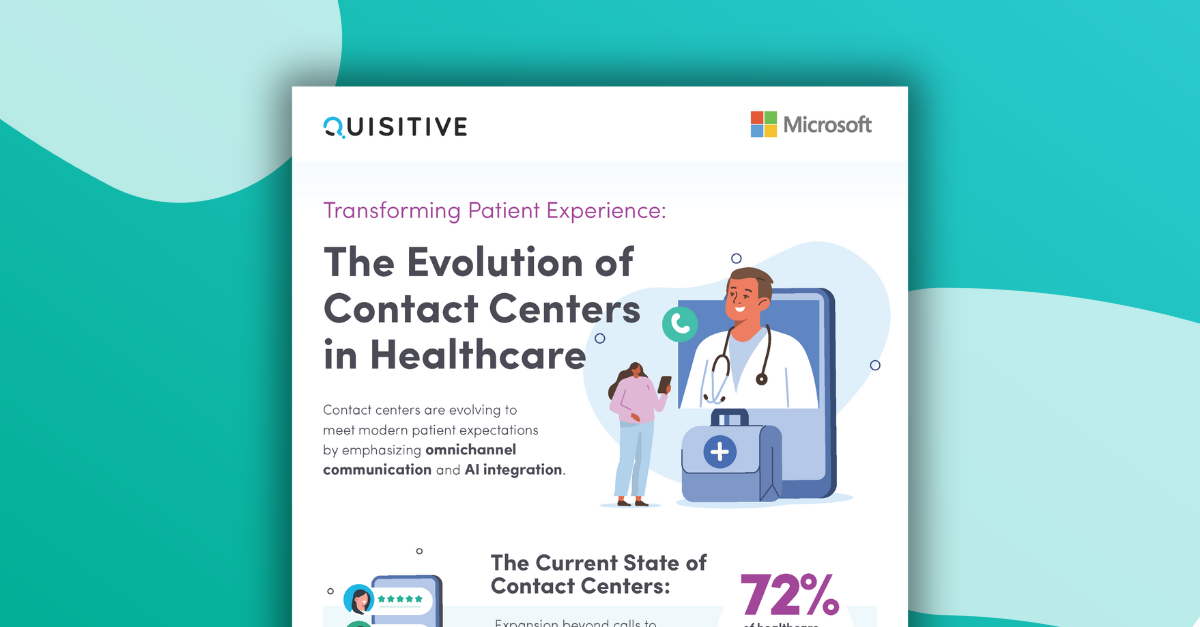Patient expectations continue to evolve, and the healthcare industry must keep pace with technological advancements to provide an omnichannel patient experience. Once viewed simply as call centers, modern contact centers have evolved into advanced digital hubs, enhancing patient engagement, streamlining processes, and transforming healthcare delivery. Central to this evolution is the integration of AI, which holds the potential to reshape the way contact centers operate.
The Current State of Healthcare Contact Centers
Today’s healthcare contact centers are no longer limited to handling phone calls. Historically, these centers struggled with long wait times and limited patient interaction capabilities. However, the rise of digital communication tools has expanded their reach across channels like email, chat, social media, and SMS, providing patients with more choices for interacting with their providers.
A recent Frost & Sullivan report revealed that 72% of healthcare organizations now see the importance of a unified contact center strategy to deliver a seamless patient experience. This omnichannel approach allows patients to engage through their preferred communication methods, which drives higher satisfaction and engagement.
The AI Revolution
AI is a game-changer for healthcare contact centers, bringing increased efficiency, personalized experiences, and predictive capabilities. According to The National Library of Medicine, AI-driven innovations could help the healthcare sector save up to $150 billion annually by 2026, through improved efficiency and patient outcomes.
The Impact on Patient Experience
Integrating AI into contact centers provides patients with shorter wait times, more personalized interactions, and smooth transitions between communication channels. For example, AI-powered chatbots can handle routine inquiries, schedule appointments, and offer follow-up care instructions. When a live agent is needed, the AI seamlessly transfers the conversation with all the prior information, ensuring continuity.
Additionally, AI’s predictive abilities enable healthcare providers to anticipate patient needs. By analyzing past interactions, AI can offer proactive solutions, such as reminders for medication refills or upcoming appointments. This personalized approach strengthens the patient-provider relationship and promotes better health outcomes.
Looking to the Future
As AI continues to advance, healthcare contact centers will gain even greater capabilities. Future developments could include more sophisticated virtual agents, AI-assisted diagnostics, and enhanced data security features. Embracing these innovations is crucial for healthcare organizations to remain competitive and meet patients’ rising expectations.
By integrating AI and adopting an omnichannel strategy, healthcare providers can revolutionize the patient experience, improve operational efficiency, and drive better healthcare outcomes.
Ready to Get Started?
Did you know that healthcare providers that offer a seamless omnichannel experience see a 40% increase in telehealth adoption, making it easier for patients to access care remotely (McKinsey & Company)? Microsoft’s Digital Contact Center Platform is an open, extensible, and collaborative contact center solution designed to deliver seamless customer and patient journeys.
Book a demo with our team to see how it works.
SOURCES:
- Frost & Sullivan’s Report on Digital Transformation in Healthcare Contact Centers
- Microsoft and Nuance merger and digital contact center: Source: Microsoft Official Blog
- NIH: The rise of artificial intelligence in healthcare applications
Original article: https://healthsystemcio.com/2024/09/04/partner-perspective-infusion-of-ai-a-game-changer-for-contact-center-functionality/

;)



